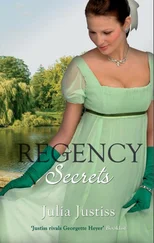But then, unlike Joshua, none of the gossips had seen his mother weeping in the doorway to his sister’s empty bedchamber, or heard how his father’s voice broke when he prayed for Jerusa’s safe return during grace before supper. Nor had any of them stared out at the endless sea the way that he had, tormented by the dread that his sister, his twin, the other half of himself, was forever beyond his reach.
Yet he would know if Jerusa had come to harm. Somehow he would sense it deep inside the soul they’d once shared. Somehow.
“The Caribbean is a mighty big place, Cap’n Sparhawk,” Harris was saying, scratching the back of his neck beneath his queue, “and there’s a world of fine young women scattered about the islands there. How, then, would I know your kidnapped lady if I came upon her?”
“You’ll know her,” said Josh, his smile grim. “She’s my sister, and she’s my twin.”

“I’m sorry, Mr. Géricault,” called Jerusa, drawing her mare to a halt, “but I’m afraid we shall have to stop for today.”
Frowning, Michel wheeled his gelding about. If he hadn’t taken pity on her near the stream, she never would have dared to make this request now.
“That’s for me to decide, Miss Sparhawk, not you,” he said curtly, “and I say we still have farther to go before we stop.”
“I’m not the one who’s asking.” Jerusa sighed, not missing the inflection he’d put on her name. She should never have allowed herself to be so shamelessly weak before him, weeping until he’d felt forced to comfort her. But what had been worse was that his arms around her had seemed so right, full of solace and understanding, as if he himself weren’t the source of the same sorrow that he wished to ease. “It’s my mare. She’s pulling as if she’s turning lame.”
Before he could order her to ride on anyway, Jerusa slid from the saddle to the ground, her legs stiff and clumsy from the long ride. Thankful that her face was turned from Michel’s critical eye, she winced and held tightly to the saddle for support as the blood rushed and tingled once again through her legs. She had always enjoyed riding before, but after the past three days she hoped she’d never see a saddle again.
Murmuring, she stroked the animal’s velvety nose to reassure her before she reached down to lift the mare’s right foreleg. “Though I can’t see properly without a light, I think she must have picked up a stone.”
“I’d no idea you were so familiar with stable-yard affairs, ma chère,” said Michel dryly, watching her obvious ease with the horse. Unexpected though it was, the fact that she was sensitive to the animal’s needs secretly pleased him, her small, elegant hands moving so gently along the mare’s fetlock to her hoof. “And here I’ve been tending the beasts all by myself.”
“As children, if we wished to ride, Father insisted we look after the horses, too.” Carefully she lowered the horse’s hoof and stood upright, flipping her braid back over her shoulder as she looked at Michel over her saddle. He still hadn’t dismounted, but then, he hadn’t ordered her back on the mare, either. “Though Father’s a sailor at heart, he does have an eye for a good Narraganset pacer, and the stable at Crescent Hill’s generally full. When Josh and I were young, you know, he and I always had matching ponies.”
“Pretty, privileged children on their ponies!” exclaimed Michel with withering sarcasm. It wasn’t just the matching ponies themselves, but how they represented an entire blissful childhood that he’d never known. He’d first gone to sea with a drunken privateer when he was eight, and learned to kill to save himself before he’d turned ten. “How charming the effect must have been! That would, of course, have been during the summers you spent at Crescent Hill?”
Reluctantly she nodded, disconcerted again by how much he seemed to know of her family’s life. “You don’t exactly ride like a farmer boy tossed on the back of his father’s plow horse, either,” she said defensively. “You sit like a gentleman.”
“I do many things like a gentleman, my dear Jerusa, but that doesn’t mean I am one.” He swung down from his horse, holding the reins in his hand as he walked toward her. “Is she really lame, then?”
“Nothing that a few hours’ rest likely won’t cure.”
Michel swore under his breath. Why couldn’t the mare have lasted one more night? Though the horizon was just beginning to gray with the light of false dawn, he had counted on riding at least for another hour. By his reckoning, they had one more night of traveling before they finally reached Seabrook and, God willing, Gilles Rochet and his sloop.
Unaware of his thoughts, Jerusa waved her hand in the direction they’d come. “I thought I saw a house there to the north when—”
“No, chérie, no houses,” he said curtly. “I, for one, have no wish to repeat our performance with the Faulks.”
Self-consciously she looked at the toes of her shoes. It wasn’t what had happened at the Faulks’ that she wished to avoid again, but what had followed. “I don’t think that would be a problem, Mr. Géricault. The house I meant looked to be a ruin. Against the sky the chimney looked broken-down, and part of the roof gone. From the hurricane two years ago, maybe, or a fire, I don’t know. But at least there’d still be a well, and maybe an orchard or garden.”
“Is that so.” Michel leaned his elbow across the sidesaddle, watching her. She’d just said more to him in the last two minutes than in the last two days, and though he rather enjoyed the change, it still put him on his guard. “Then tell me, ma chérie, exactly how you plan to try to leave me from this delightful ruin of a cottage?”
“Leave you?” Jerusa repeated, her face growing warm at the accusation, which, this time, was unfounded. She wished they could return to talking about the horse instead.
“Yes, yes, leave.” He sighed deeply, in a way that made her think again of what it had been like to rest her cheek against his chest. “I hadn’t expected you to give up just yet, you know.”
“Then you have more faith in me than I do myself. I have neither food nor water nor money, I’m in a place I don’t know, where no one knows me, and my horse is lame. You might not have bound me with chains or cords, Mr. Géricault, but what you’ve done has been thorough enough.”
His smile faded as he listened. Though the bitterness was still in her voice, something else had subtly altered between them. He couldn’t tell exactly what, not yet, but the change was unmistakable.
“No more of this ‘Mr. Géricault,’ ma chère,” he said softly as he stepped around the mare’s head to come stand before Jerusa. “Call me Michel. Please.”
She twisted her reins in her fingers, shaking her head. The distance she earned by using that “Mr.” was small and fragile, but with him she felt she needed every last bit, and she was almost painfully aware of the dark, inexplicable currents of emotion swirling between them now.
She forced herself to look away and to watch instead how her mare had begun to graze, tugging at the long wild grass that grew alongside the path. They had stopped near an old stone wall that was overgrown with a tangled mass of honeysuckle, and the sweet, heady fragrance of the white-and-yellow blossoms filled the air like perfume.
Michel clucked, and the mare’s ears pricked up as she eyed him quizzically. In spite of herself, Jerusa smiled and let her gaze follow the mare’s to the Frenchman. He stood with his hat in his hand, the pose of a careless supplicant, his hair pale gold in the fading moonlight and his blue eyes almost black, a half smile playing about his lips that was meant to be shared. With a start, she realized she’d never smell honeysuckle again without thinking of Michel Géricault. Would he, she wondered, say the same of her?
Читать дальше













